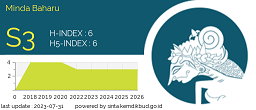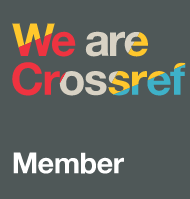WORKSHOP GAMIFIKASI LITERASI MATEMATIKA BERBANTUAN APLIKASI ROLE PLAY GAME UNTUK GURU DAN MAHASISWA
Abstract
Keywords
Full Text:
PDFReferences
Ahadi, A., Bower, M., Lai, J., Singh, A., & Garrett, M. (2021). Evaluation of teacher professional learning workshops on the use of technology: A systematic review. Professional Development in Education, 50(1), 221–237. https://doi.org/10.1080/19415257.2021.2011773
Fendiyanto, P., Rizki, N. A., Muhtadin, A., Ikmawati, I., Samsudin, A. F., & Kurniawan, K. (2023). Workshop pendampingan literasi guru matematika SMP dengan pendekatan konteks sosial budaya Kutai di Kabupaten Kutai Kartanegara. Bubungan Tinggi: Jurnal Pengabdian Masyarakat, 5(1), 34–41. https://doi.org/10.32435/bt.v5i1.7692
Hamidah, I., Ilma, R., Putri, I., & Pramuditya, S. A. (2024a). How is the Implementation of Realistic Mathematics Education on Mathematical Literacy Skills ? A Systematic Literature Review. 13(3), 741–756. https://doi.org/10.31980/mosharafa.v13i3.2089
Hamidah, I., & Sadikin, H. (2024). Pelatihan Pembuatan Media LKS Interaktif Berbantuan Aplikasi Wizer.Me Untuk Guru-Guru SMP di Pondok Pesantren Modern Al-Muqoddas. ABJIS: Al-Bahjah Journal of Islamic Community Service, 1(1), 22–31. https://doi.org/10.61553/abjis.v1i1.43
Hamidah, I., Zulkardi, Putri, R. I. I., & Pramuditya, S. A. (2025). Developing a Mathematical Literacy Learning Environment for Students through Educational Game Assistance. Mathematics Education Journal, 19(1), 141–162. https://doi.org/10.22342/jpm.v19i1.pp141-162
Hamidah, I., Zulkardi, Z., Putri, R. I. I., Susanti, E., & Nusantara, D. S. (2024b). Hypothetical Learning Trajectory Design in Reflection Learning Using the Context of the Cirebon Red Mosque. Jurnal Pendidikan Matematika (JUPITEK), 7(1), 1–10. https://doi.org/10.30598/jupitekvol7iss1pp1-10
Imanizar, L., Napitupulu, N. L., & Manalu, S. (2021). Penerapan Role Playing pada Pembelajaran Matematika Sekolah Dasar. Jurnal Ilmiah Mahasiswa Pendidikan Matematika, 1(1), 41–46.
Makhmetova, Z., Karabassova, L., Zhakim, A., & Karinov, A. (2025). Exploring the effects of professional learning experiences on in-service teachers’ growth: A systematic review of literature. Education Sciences, 15(2), 146. https://doi.org/10.3390/educsci15020146
Mahmudi, A., Jailani, J., Setyaningrum, W., Tuharto, T., Saptaningtyas, F. Y., & Fauzan, M. (2022). Development of mathematics learning media training based on realistic mathematics for teachers of integrated Islamic elementary schools. Jurnal Pengabdian Masyarakat MIPA dan Pendidikan MIPA, 2(1), 21–30. https://doi.org/10.21831/jpmmp.v2i1.18699
Nathaniel, V. (2023). Penerapan Gamifikasi Pada Proses Belajar Matematika untuk Anak Sekolah Dasar Untuk Meningkatkan Motivasi Belajar Siswa. Jurnal ICTEE, 3(2), 46–50. Penerapan Gamifikasi Pada Proses Belajar Matematika untuk Anak Sekolah Dasar Untuk Meningkatkan Motivasi Belajar Siswa | Nathaniel | Journal ICTEE
OECD. (2023). PISA 2022 Results. In Factsheets: Vol. II. https://www.oecd-ilibrary.org/education/pisa-2022-results-volume-i_53f23881-en%0Ahttps://www.oecd.org/publication/pisa-2022-results/country-notes/germany-1a2cf137/
Saluza, I., Pratiwi, E., Yulianti, E., Marcelina, D., & Permatasari, I. (2024). Workshop pengembangan kompetensi guru melalui pembuatan media pembelajaran interaktif menggunakan augmented reality. Reswara: Jurnal Pengabdian Kepada Masyarakat, 5(1), 58–65. https://doi.org/10.37950/reswara.v5i1.1359
Susanta, A., Koto, I., & Susanto, E. (2022). Workshop penyusunan bahan ajar outdoor matematika berbasis lokal konteks untuk guru sekolah dasar. JPM: Jurnal Pengabdian Masyarakat, 4(2), 12–18. https://doi.org/10.47065/jpm.v4i2.1245
Sibgatullin, I. R., Korzhuev, A. V., Khairullina, E. R., Sadykova, A. R., Baturina, R. V., & Chauzova, V. (2022). A Systematic Review on Algebraic Thinking in Education. Eurasia Journal of Mathematics, Science and Technology Education, 18(1), 1–15. https://doi.org/10.29333/EJMSTE/11486
Zhang, X., et al. (2023). The effect of professional development on in-service STEM teachers’ self-efficacy: A meta-analysis of experimental studies. International Journal of STEM Education, 10, 37. https://doi.org/10.1186/s40594-023-00422-x
DOI: https://doi.org/10.33373/jmb.v9i1.7560
Refbacks
- There are currently no refbacks.
License URL: https://creativecommons.org/licenses/by/4.0/

Ciptaan disebarluaskan di bawah Lisensi Creative Commons Atribusi 4.0 Internasional.
















